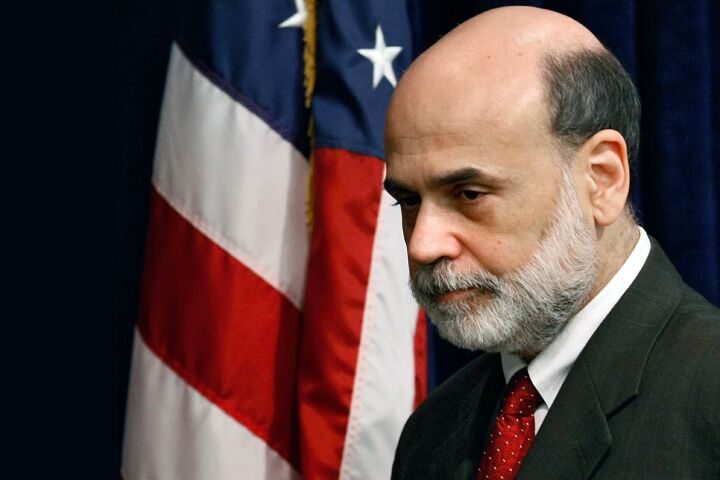
The Fall of the Fed
The European Central Bank actually did something. After a year of inactivity, the ecb raised interest rates for the eurozone to 4.25 percent, effective July 9. Across the Atlantic, the United States Federal Reserve has spent the last year slashing rates. Did America make the right choice? The ecb obviously doesn’t think so. If the United States is wrong, not only will the dollar take another hit, but the whole U.S. economic system—whose reputation is already suffering—will stand to lose serious credibility.
Central bankers face a tough choice: Economies are slowing, but inflation is rising. If they raise interest rates, inflation, theoretically, falls. If they lower them, inflation increases. Economic growth works the other way. A low interest rate makes borrowing easier, artificially juicing the economy. A higher rate slows it down.
The dilemma comes when the economy is weakening but inflation is rising—the exact condition facing America today. To stimulate economic growth, the theory goes, interest rates should be cut. But to control inflation, interest rates need to rise.
So what is more important? The Fed has focused on economic activity, and cut rates. The ecb has focused on controlling inflation and raised them.
We may be about to find out which method works better. Some argue that America needed to slash rates to keep money flowing through the economic system as banks became less willing to lend after the subprime fiasco and house price drop. Others say that if the U.S. had kept interest rates high, this would have supported the dollar, keeping oil and other commodity prices lower.
At the moment, however, the fact that the U.S. sacrificed long-term economic prospects, the dollar and low inflation for short-term economic stimulus is hurting Fed credibility.
The point is not so much whether the Fed made the right choice or not, but the fact that most of the world seems to think it made the wrong one. When large investment bank representatives like Tim Bond, the chief equity strategist at Barclays Capital, say the Fed has zero or even “negative credibility,” it’s a sign that people have little trust in the U.S. central bank.
While the ecb has remained cool and collected, the Fed looks panicky, cutting rates willy-nilly. The economy has continued its downward trajectory, and now the Fed is talking about raising interest rates again to combat inflation. In contrast, European interest rates have remained fairly stable, instead of shooting down, despite the crisis. And economic growth has continued, even above expectations. Where are you going to put your money? Europe seems the less risky, more reliable choice.
There is worse news for the Fed. In what Spiegel Online calls an “unheard of” event, the International Monetary Fund (imf) has decided to conduct a general examination of the entire U.S. financial system—an x-ray of the whole economy.
Major banks and financial institutions will have to hand over confidential documents to the imf. Their employees will be interviewed. Their systems will undergo stress tests to simulate worst-case scenarios, such as a drop in the dollar or the failure of a large bank.
U.S. President George W. Bush has blocked the painful assessment for the past seven years. He only allowed it to go forward on the condition that the results are not published until after he is out of office. He is obviously not expecting a good report.
The U.S. economy is being transformed from a world power to a world pariah. Subprime mortgages from the U.S. infected the whole world. Now, the perception is that the U.S. is handling the crisis poorly. And when the imf reports in 2010, the U.S.’s economic reputation will sink even lower. For the first time in years, the world believes Europe is handling its finances better than America is. As a result, watch for world economic leadership to move to Brussels.
